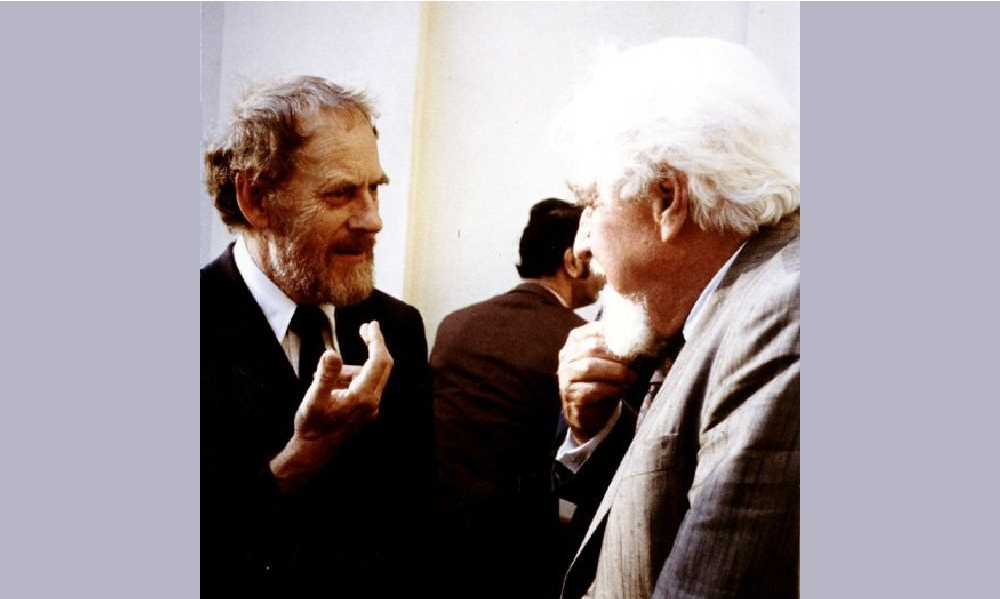Curriculum
Vitae Wolfgang M. Schleidt
I was born 18 December 1927 in Vienna, Austria to parents who were
still close to our ancestors' peasant stock. Here I received my formal
education through high school, which was cut short when 1944, before my 17th birthday,
I was drafted into the German Army. Luckily, I survived a close encounter with a
Soviet tank that determined my further career: a severe injury of my left hand literally
shattered my hopes to enter medical school,
and as a substitute I choose zoology and anthropology.
From the very beginning my special interests were directed toward the behavior of both:
beasts and humans. My dissertation focused on a humble native vole and was one of the
first attempts to combine physiology, behavior, and ecology of a species in a comprehensive
life history with a strong evolutionary slant,
e.g. an analysis of the behavior of newborn mammals that included a sample of human babies.
Konrad Lorenz, soon after his return from a Russian POW camp, noticed my skills
not only as a scientist but also as a maker of things and manager. When, in 1950,
his hopes materialized for a new start in Germany, he asked me to become his assistant,
especially to help him build his new institutes, sponsored by the Max-Planck-Gesellschaft,
first in Buldern (Westphalia, Germany) and later the famous Max-Planck-Institute for
Behavioral Physiology in Seewiesen (Bavaria). In this setting, I was able to start my
decisive investigations of basic ethological concepts,
especially of "Innate Releasing Mechanisms" and "Fixed Action Patterns".
In 1964 I followed an Invitation as Research Associate with Peter H. Klopfer and Donald K. Adams at
Duke University, Durham, N.C., U.S.A. From 1965 to 1985 I headed a renowned ethological research team
at the College Park Campus of the University of Maryland (U.S.A.), specializing in the area of
bioacoustics and communication. Co-hosting, with John Eisenberg of the Smithsonian Institution,
the first meeting in the U.S.A.
of the International Ethological Conference in 1973 was one of the highlights during this phase.
In 1985 I was invited back to Austria to head the Konrad Lorenz Institute for behavioral
studies of the Austrian Academy of Science in Vienna. I was also teaching ethology at the
University and in 1989 I was granted the title "ausserordentlicher Professor."
1992 I retired from my position with the Academy, but continued my research and teaching at the
University of Vienna as "ethologist in private practice."
In 2002, due to age-related handicaps, especially my increasing hearing loss I reduced my
public activities to the internet.


|
Wolfgang M. SchleidtHauptstrasse 79A-2440 Moosbrunn, Austria |